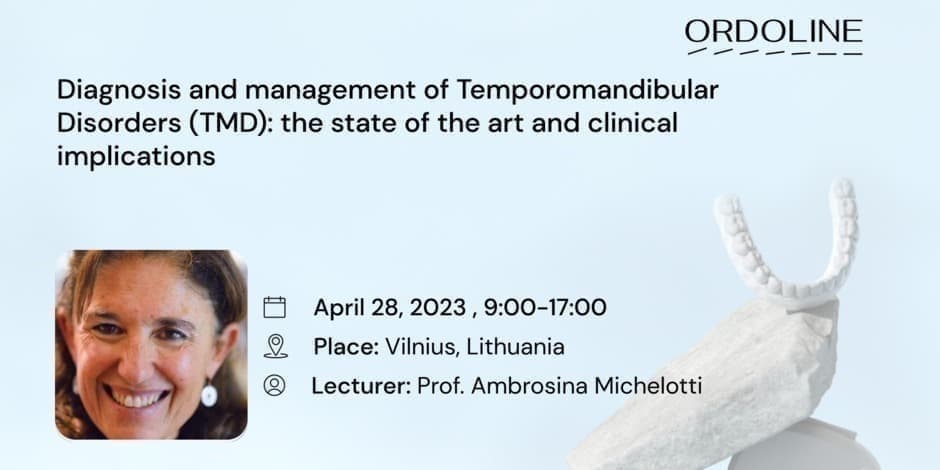Diagnosis and management of Temporomandibular Disorders (TMD): the state of the art and clinical implications
Temporomandibular disorder (TMD) is a collective term including a set of heterogeneous conditions that affect the masticatory muscles, the temporomandibular joints (TMJs), and the surrounding tissues and structures. These conditions are characterized by regional acute or persistent pain in the facial and/or preauricular areas, limitation or interference in jaw functions, and/or noises from the TMJs during jaw movements. TMD affects approximately 15-30% of the population
Given the complexity of the disease, TMD treatment cannot simply rely on a single treatment modality, instead, the management should encompass a comprehensive multimodal approach. Conventional goals of successful management of TMD should be focused on: making the pain disappear (or at least reducing pain intensity), rehabilitating normal jaw functions, and restoring normal psychological and social functioning and well-being.
During this course, prof. Ambrosina Michelotti, one of the most renowned experts on TMD treatment will provide essential knowledge on the disorder, teach how to diagnose and screen for TMD and treat it by applying different protocols.
Course topics:
- Introduction to TMD
- Epidemiology
- Risk factors
- Comorbidities
- Psychosocial factors
- Occlusion and TMD
- The role of the central nervous system
- Screening tools for TMD
- Standardized clinical examination
- Diagnoses according to DC/TMD
- Management of TMD patients
- Evaluation of bio-psycho-social domain
- Principles of cognitive, behavioral therapy
- Patient-centered treatment
- Self-management
- Physical Therapy and Home exercise protocols
- Occlusal splints
- Management of TMD before or during orthodontic/dental treatment
Photographs and videos may be taken at the event and this material may be published in publicly available media.

